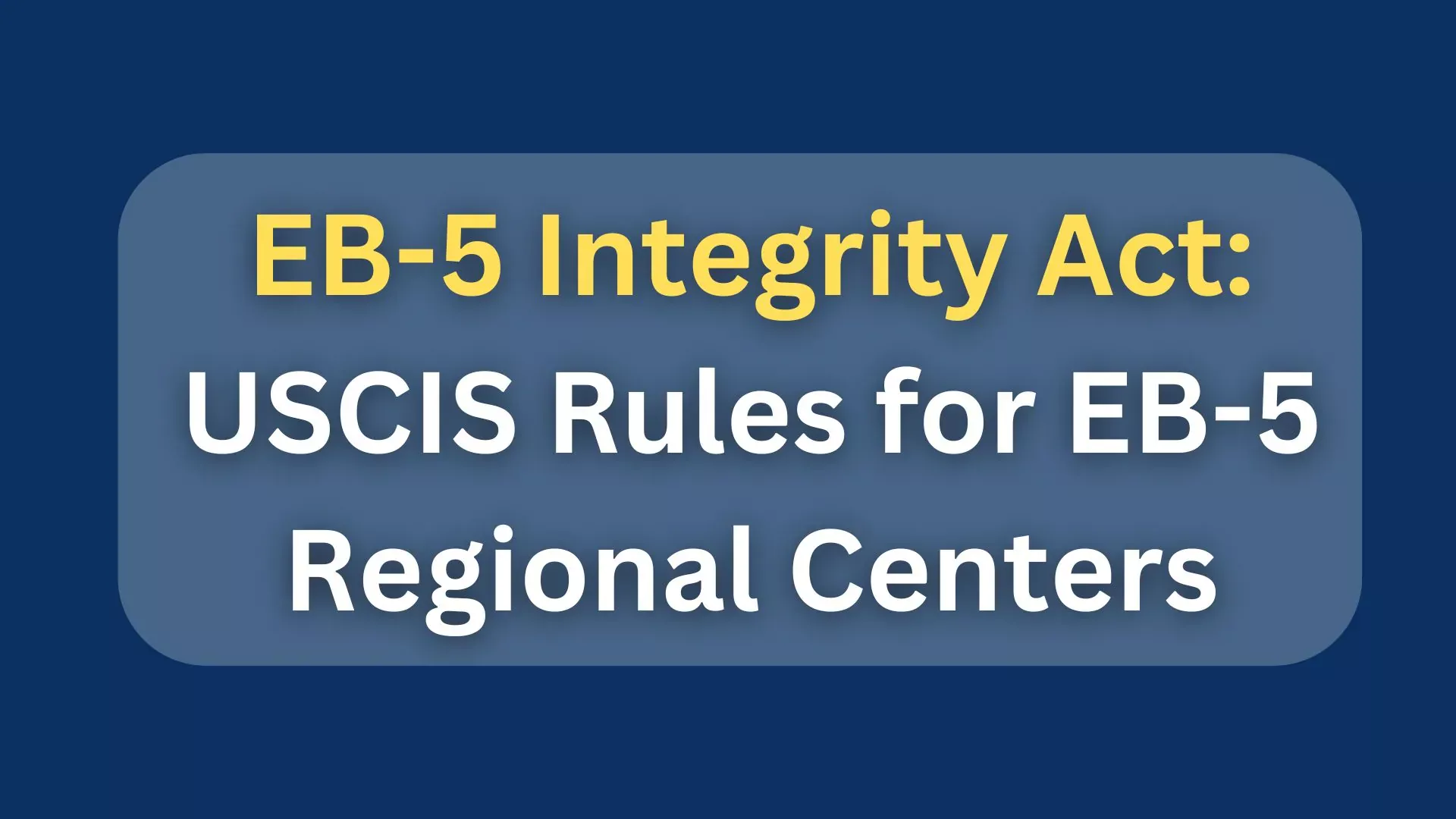USCIS, the U.S. Citizenship and Immigration Services, has made some new rules for EB-5 Regional Centers.
Now, according to the new law called the EB-5 Reform and Integrity Act of 2022, USCIS will audit each regional center at least once every five years, Under the amended section 203(b)(5)(E)(vii) of the Immigration and Nationality Act.
These audits are important because they help check if the information the regional centers give is correct. This makes sure the EB-5 program is fair and trustworthy.
During these audits, USCIS will look at the papers the regional centers are supposed to keep and how money from immigrant investors is being used in projects. This helps make sure that everything is being done right and according to the rules.
If, during a visit for the audit, someone from the regional center doesn’t want to take part, USCIS will cancel the visit. But they’ll still finish the audit using the information they have.
If a regional center refuses to be audited or tries to stop the audit on purpose, they could get in trouble. USCIS might even take away their permission to be a regional center.
But if a regional center gets a bad result from the audit, it won’t directly affect the investors or people associated with it, as long as they didn’t try to stop the audit on purpose.
USCIS will mostly use the audit findings to decide if the regional center should still be allowed to operate and if all the paperwork and applications are following the rules.
Starting from April 23, USCIS will use a set of standards called Generally Accepted Government Auditing Standards (GAGAS), also known as the Yellow Book, for these audits.
These standards help make sure everything is being done correctly and legally. To help regional centers understand the audit process better, USCIS has created a new webpage with information on what the audit team does, how to get ready for an audit, and what to expect during one.
